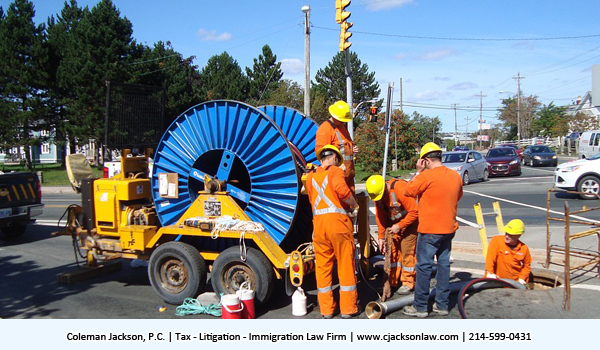By: Coleman Jackson, Attorney & CPA
October 20, 2021
Suppose your company is an unsuccessful bidder for a government contract or has won an award, and an unsuccessful bidder is protesting your prize. In that case, it is essential to defend your rights vigorously. In the federal market, bid protests are an integral oversight mechanism, ensuring that procurement statutes and regulations carry out federal acquisitions policy goals. Or Suppose a company believes the federal government failed to comply with the terms of a solicitation (i.e. IFB, RFP, RFQ, etc.) or applicable laws or regulations in a procurement transaction. In such instances as these, the company (bidder) must follow strict rules or face losing the right to protest. What is a bid protest? A bid protest is a legal challenge to the government’s actions during the procurement phase, including evaluating bids/proposals and the award of a government contract. The how, when, and where of bid protests are controlled by various laws and regulations.
Bid protests can be brought in different forums and are subject to strict timelines that must be followed appropriately. Whether defending a protest as a successful awardee, or prosecuting a protest as a disappointed bidder, all government contractors must understand the bid protest process to defend their contract awards from protest successfully or vindicate their rights to full and open competition as a protester. First of all, let’s clear up some confusion and doubts about the bid protest process.
Bid Protest Overview
Bid protests are legal challenges brought by bidders against the way the Government has conducted a procurement transaction.
An interested party may protest to the agency, the Government Accountability Office (GAO), or the United States Court of Federal Claims (COFC).
Which venue is best to bring a bid protest will depend upon various facts. Primary considerations include the value of the procurement to your company, the cost of pursuing a protest in the particular venue, whether the protest would be timely in the venue (i.e. a protest that is untimely in the GAO may be timely in the COFC), and whether the protest will involve information that requires a protective order (i.e., competitive communication is limited to the attorneys, and not disclosed to the companies involved). In recent years, most bid protests are filed with the GAO, so in our blog, we will focus on the GAO bid protest process.
GAO has defined the basic standard of its review of a bid protest as follows:“ The evaluation of an offeror’s proposal is a matter within the agency’s discretion. A protester’s mere disagreement with the agency’s judgment in its determination of the relative merit of competing proposals does not establish that the evaluation was unreasonable. While we will not substitute our judgment for that of the agency, we will question the agency’s conclusions where they are inconsistent with the solicitation criteria and applicable procurement statutes and regulations, undocumented, or not reasonably based.”
How many days you have to file a protest will depend the basis for the protest to begin with. In general, if a protest is based on an obvious problem with the solicitation documents, the protest must be filed before the date the bid or proposal must be submitted. The purpose of this rule is to prevent a contractor from sitting on their rights to challenge what they believe to be an unfair solicitation, rolling the dice to see if they win, and then, if unsuccessful, filing a protest.
The time requirements for other protests, such as a challenge to the government’s decision to award the project to another company, will depend on the protest venue. At the GAO, a protest must be filed within ten days after the basis for the protest is known or should have been known. If a debriefing is requested, and the government is required to provide the debriefing (i.e., negotiated procurement under FAR Part 15), then the protest may be filed within ten days after the debriefing.
However, there are benefits to filing the protest even earlier because of automatic stay rule. An automatic stay (i.e., the government is required to withhold award and suspend contract performance) if the protest is filed with the GAO within five days of the offered mandatory debrief date or within ten days of contract award. A stay of performance can be very consequential since it can impact your remedy or ultimate relief. Without auto stay, the contract will continue to be performed, and there may not be any contract requirement left to award to you even if your protest is successful.
Once your protest is filed with the GAO, the agency has 30 days to provide the agency report (AR). The AR will include documents responsive to your protest arguments, including documents requested explicitly in your protest. The AR will consist of a statement by the contracting officer regarding the grounds of the protest and a legal memorandum from the agency’s lawyer. In addition, the AR will show what the agency did during the procurement process, which may bolster the initial protest or provide additional grounds for protest. Sometimes the agency refuses to provide certain requested documents, and the dispute has to be settled by the GAO attorney assigned to the protest.
The agency or an intervening awardee may request that all or part of your protest be dismissed. Such requests by the agency or intervenor are often based upon arguments of timeliness, standing, ripeness, and lack of prejudice. If a request for dismissal is filed, the protestor will have to file a response opposing the bid. If a dismissal request is submitted, it is often before the 30-day deadline for filing the AR. This AR should be reviewed carefully and with skill because it often is a source of very helpful historical information pertaining to the government officials actions in award of government contracts under open and fair competition laws.
Once the AR is provided, the protestor has ten days to file comments responding to the agency’s arguments. If the protestor fails to address any ground of protest in its words, the GAO will deem the omitted environment as abandoned by the protestor. The protestor must be meticulous when marshaling the facts; and the bid protestor must cogently and thoroughly apply relevant government contracting legal principles when challenging government contract awards at the GAO or any other legal forum.
In addition to comments, as I mentioned in pasting before, a protestor often discovers additional grounds of protest upon reviewing the AR. Review the AR right away; because time is of the essence. These different protest grounds have to be filed within ten days of receiving the AR (i.e., within ten days of knowing the basis for the protest ground). The agency will be required to file a supplemental AR in response, and the protestor will have to file additional comments. The process for supplemental protests is truncated (e.g., the GAO may require the supplemental AR to be filed within ten days instead of the 30 days allotted for the initial AR).
The agency may take corrective action at any point in the process. Remedial action by the agency is a recognition that they failed to comply with some part of the procurement process, and they are therefore correcting that mistake. The agency has broad discretion in corrective action, and it often includes a reevaluation of proposals or amendments to the solicitation. If the agency takes corrective action, the GAO will dismiss the portion of the protest related to the corrective action.
The GAO will issue its decision within 100 days of the filing of the protest. The GAO may deny or sustain the protest, in whole or part. If the protest is supported, the GAO will direct the agency to remedy the problem. If the GAO denies a protest, the protestor may refile the protest with the Court of Federal Claims.
Understandably, clients often want to know the likelihood that their protest will be successful. However, the possibility of success or failure is fact-specific to each protest. Moreover, many successful protests are based upon the supplemental protest, which is not available to the protestor until the AR is filed. Statistically, however, the GAO has reported that the effectiveness rate of protests in the last several years is between 42% to 45%. That means nearly half of the protests filed result in the GAO sustaining the protest or the agency taking corrective action to remedy the mistakes cited in the protest.
You should promptly speak with an attorney and counselor if you believe the government has not abided by the terms of a solicitation or applicable government contracting laws and regulations. Timely guidance and evaluation of your potential bid protest are essential to meeting the stringent requirements for protesting government contract awards. This is merely an overview of Strategies for Responding to Bid Protests in Government Contracting; knowledge and skill in government contract law, and proper evaluation of all the facts and circumstances are extremely important when pursuing legal strategies.
This law blog is written by the Taxation | Litigation | Immigration Law Firm of Coleman Jackson, P.C. for educational purposes; it does not create an attorney-client relationship between this law firm and its reader. You should consult with legal counsel in your geographical area with respect to any legal issues impacting you, your family or business.
Coleman Jackson, P.C. | Taxation, Litigation, Immigration Law Firm | English (214) 599-0431 | Spanish (214) 599-0432 | Portuguese (214) 272-3100





